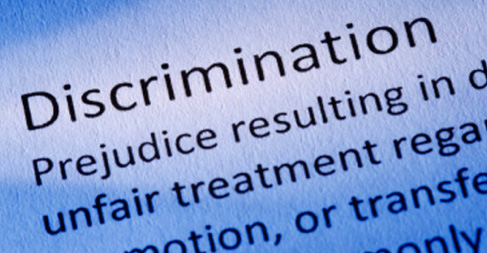The number of charges filed by employees with the Equal Employment Opportunity Commission (EEOC) is near an all-time high, with lawsuits brought by employees representing one of the most common types of litigation faced by employers of all sizes. The number of charges filed with EEOC grew sharply from about 75,000 in 2005 to almost 100,000 in 2010. New charges have since held steady at the nearly the 100,000 level. Charges involve allegations of discrimination, harassment, retaliation, failure to adhere to minimum wage and overtime rules in addition to issues involving gender gap pay and the use of genetic information in employment decisions. What’s more, new legislation and rulings further complicate the employee liability landscape.
For example, in late June the Supreme Court ruled that DOMA, the Defense of Marriage Act, was unconstitutional. The ramifications of the ruling could be far-reaching and complex for employers, especially those in states where same-sex marriage is not recognized. Issues involving the Family Leave Act, which allows eligible employees to take leave to care for a family member with a serious health condition, may arise. A “family member” includes the employee’s spouse. In states where same-sex marriage is not legal, it isn’t clear yet whether a spouse would be entitled to FMLA leave to care for his or her partner. Employee benefit plans may also affected in terms of coverage eligibility and COBRA benefits. Without the proper guidance, these types of issues can leave an employer exposed to a potential lawsuit.
We are also seeing new employment-issue trends as a result of our changing social conditions. Age-related charges filed with the EEOC, for example, have steadily trended upward as the workforce grows older. With an increasingly diverse workforce, allegations of religious discrimination have also been on the rise: charges filed with EEOC alleging religious discrimination, as a percentage of all charge filings, grew 77 percent between 2001 and 2011.
There is increased concerned around discrimination issues as well. In 2011, Congress amended the Americans with Disabilities Act to extend workplace disability protections to morbidly obese people, defined as those 100% or more above the healthy weight range for their height. In April of 2012, the EEOC settled its first case on weight-related workplace discrimination. More recently, the AMA recently classified obesity as a disease and the implications of this in terms of an increase in potential lawsuits is unknown.
Moreover, criminal background checks in two recent cases have been found to disproportionately impact minorities and other protected groups. The EEOC in June filed charges against discount retailer Dollar General Corp. and a U.S. division of German automaker BMW, alleging that they turned away new hires based on criminal background checks, when they should have considered each applicant individually and evaluated whether his or her past arrest or crime had any bearing on the job for which they applied. The EEOC is charging that the hiring policies at both companies had the effect of discriminating against African-American applicants, in violation of Title VII of the 1964 Civil Rights Act, which bars employers from discriminating based on race. Last year a unit of PepsiCo settled discrimination charges brought by the EEOC, agreeing to pay a $3.1 million fine and to change its screening policy after it was charged with discriminating against African-Americans by using criminal background checks, in some cases barring applicants who had been arrested but not convicted.
Technology also poses new challenges for businesses. Smartphones and tablets blur the line between work and non-work as people are basically always connected work-wise. Questions arise as to whether an employee who answers an evening email should be compensated for his or her time. Or, can an employee who criticizes his or her employer during non-work hours on a social networking site be terminated?
The employment practices field is fraught with exposures. Insureds need to be current on new rulings and legislations that may affect them, have clear policies and procedures and effective employee communication in place, implement ongoing management training, and ensure that their employee handbook is updated. In addition, Employment Practices Liability Insurance is essential as part of any sound risk management strategy. At IPOA, we offer EPLI to our agency’s clients. In fact, with our HotelPro product, you can obtain an immediate premium indication online by filling out an easy-to-use form. You can also get an indication for Data Breach coverage.
Sources: EEOC, Forbes, Advisen







